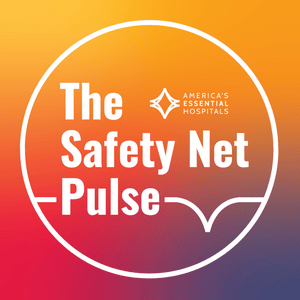No advertising. More Prime.
No advertising. More Prime.
No advertising. More Prime.
No advertising. More Prime.
The podcast starts in
- 0 sec.
Medicaid State Directed Payments: A Lifeline for Essential Hospitals and the Communities They Serve



The Safety Net Pulse